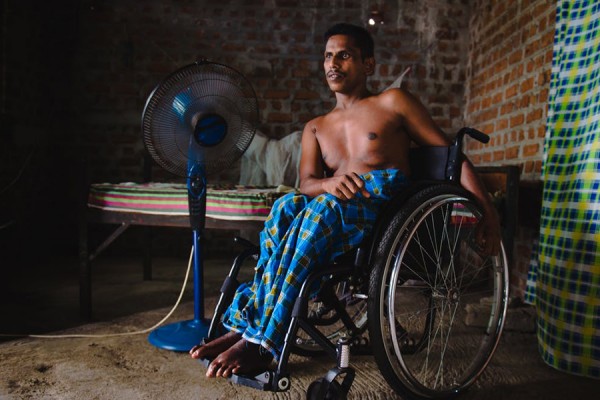 A Tamil man paralyzed by shelling during the final weeks of the Sri Lankan civil war.
A Tamil man paralyzed by shelling during the final weeks of the Sri Lankan civil war.
While the 1994 Rwandan genocide has become part of the world’s collective memory, the 2009 Tamil genocide in Sri Lanka has not, says UWindsor sociology professor Rudhramoorthy Cheran.
With law professor Sharry Aiken of Queen’s University, he has written an article on the subject published Friday in the Conversation, which shares news and views from the academic and research community.
Fifteen years after the killing of an estimated 800,000 Tutsis and politically moderate Hutu in Rwanda, another slaughter unfolded — this time in northern Sri Lanka. The protracted civil war between the national government and the Liberation Tigers of Tamil Eelam was coming to an end, with the United Nations Secretary General later estimating civilian deaths at 40,000 over the final five months of conflict.
Efforts to prosecute ringleaders in Rwanda were part of an ongoing attempt to promote reconciliation, an attempt Dr. Cheran contrasts with failed promises in Sri Lanka.
“Sri Lanka has repeatedly reneged on pledges to investigate and prosecute wartime atrocity crimes,” he writes. “So long as impunity and the failure to address the root causes of atrocity crimes continue in Sri Lanka, lasting peace will remain elusive.”
Read the entire piece, “Rwanda and Sri Lanka: A tale of two genocides,” in the Conversation.
